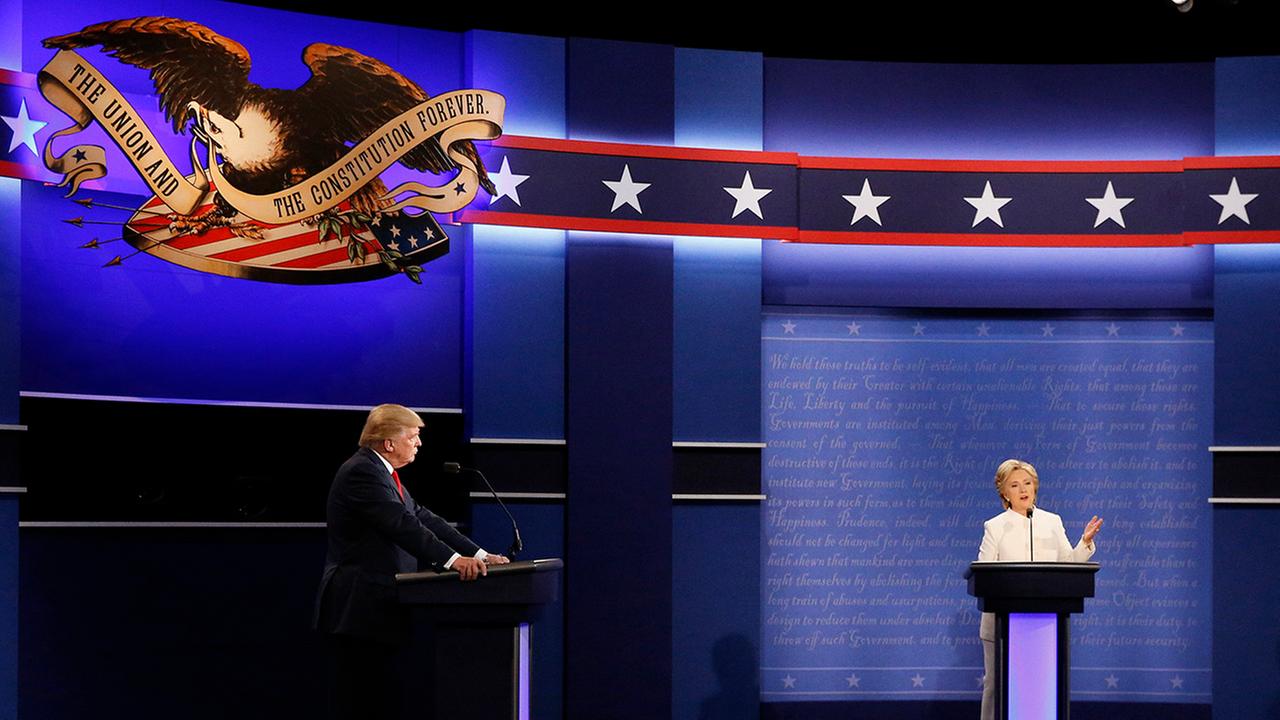
Trump: The election is rigged — unless I win
After losing the first two debates to Hillary Clinton on points, Donald Trump needed a spectacular knockout victory in the last match to get his campaign off life support. Instead, he walked almost casually into a fight-ending punch when he declared that he would not accept the results of the election if he lost.
The threat was the culmination of a disastrous and decisive night for the Republican standard bearer. It was all downhill for Trump after the first few minutes of the debate, during which he was almost holding his own against Clinton. But, like a boxer who knows he needs to beat his opponent to a pulp in the late rounds to have any chance of ultimate victory, he lost his cool. Abandoned all strategy. Jettisoned any discipline. Began throwing the rhetorical equivalent of wild punches, most of them errant and many below the belt. That left him open to Clinton’s tough counterpunches. In a phrase, Trump reverted to Trump, and that was his undoing.
To make matters worse, Trump excesses earned the scorn of the audience, which erupted into laughter, when he made the outlandish claim that no one has more respect for women than he. That statement was just the most transparently false claim in a flurry of lies, misleading assertions, and distortion of fact that have been Trump’s stock in trade throughout the campaign. But the vicious attacks were mostly ineffectual and Hillary Clinton remained standing and virtually unfazed until the final bell.
Things got worse after the debate. Polls showed that most people thought Hillary won, leaving Trump with an embarrassing 0-3 debate record. The fallout was even more damaging than the polls. The next day the leading story in every major newspaper in the United States was Trump’s declaration that he might not accept the legitimacy of the election if he lost. The coverage of Trump’s flirtation with the idea of defying the will of the voters was extensive and almost unanimously unfavorable.
That reaction had nothing to do with Trump’s perennial complaint that the media is biased against him as part of a broader conspiracy to “rig the election.” The peaceful turnover of power has been a hallmark of American politics since the beginning. Anyone of whatever party or ideological stripe who would challenge that tradition would be sure to catch hell from every quarter, and Trump did. Americans expect losers to concede gracefully. Nothing is more disliked than a sore loser. And Trump appeared to mock democratic principles held almost sacred in this country when the next day he said he would “completely accept the result—if I win.”
The second wave of fallout followed quickly. It focused on the content of many of Trump’s factual assertions during the course of the debate. Military experts threw cold water on Trump’s charge that the United States had made a serious error in announcing the offensive to retake the Iraqi city of Mosul from ISIS, thereby losing the element of surprise. They made the point that such an announcement is a standard practice that serves the purpose of warning civilians to flee and instilling fear in the enemy. In addition, the experts pointed out that with 30,000 troops progressively encircling the city, there could not be any element of surprise. One military expert concluded that Trump’s statements concerning the Mosul offensive shows that Trump “doesn’t know a damned thing about military operations.”
There was more. On the issue of late-term abortions, leaders in obstetrics-gynecology charged that Trump’s depiction of fetuses being ripped out a mother’s womb just before birth holds little resemblance to what actually happens in such tragic situations. With regard to Trump’s grandiose plans for jobs, jobs, jobs and for cutting the deficit, even many conservative economists crunched the numbers and found they didn’t add up. And with respect to Trump’s repeated accusation that the election was being “rigged,” state electoral officials of both parties called the charge irresponsible and denied that that was even possible. None of that failed to deter Trump from continuing to harp on the idea.
In the aftermath, two big questions haunt Washington. Republicans fear that a Trump electoral debacle could hand one or both houses of Congress to the Democrats. Democrats and others outside the Republican establishment are uneasy about what Trump is planning to do if he loses the election.
Trump will find that there are no workable legal or institutional means for overturning the results of a presidential election, barring a contested photo-finish. And a coup is unthinkable and undoable in the United States.
The likelihood is that Trump and establishment Republicans will forge an uneasy common front to do what the GOP intended to do when Obama entered the White House: prevent the president from governing effectively and ensure a one-term presidency. Considering how that worked out, good luck with that.

